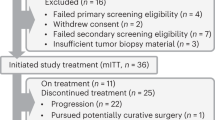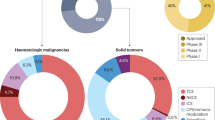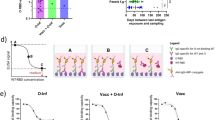Abstract
Nucleic acid immunization has been investigated as immunotherapy for infectious diseases as well as for treating specific types of cancers. In this approach, nucleic acid expression cassettes are directly inoculated into the host, whose transfected cells become the production source of novel and possibly immunologically foreign protein. We have developed a DNA vaccine construct which encodes for PSA by cloning a cDNA for PSA into a mammalian expression vector under control of a CMV promoter. We investigated and characterized the immunogenicity of PSA DNA expression cassettes in mice. PSA-specific immune responses induced in vivo by immunization were characterized by enzyme-linked immunosorbent assay (ELISA), T helper proliferation cytotoxic T lymphocyte (CTL), and flow cytometry assays. We observed a strong and persistent antibody response against PSA for at least 180 days following immunization. In addition, a significant T helper cell proliferation was observed against PSA protein. Using synthetic peptides spanning the PSA open frame, we identified four dominant T helper epitopes of PSA. Furthermore, immunization with PSA plasmid induced MHC Class I CD8+ T cell-restricted cytotoxic T lymphocyte response against tumor cell targets expressing PSA. The prostate represents a very specific functional organ critical for reproduction but not for the health and survival of the individual. Understanding the immunogenicity of PSA DNA immunization cassettes offers insight into the possible use of this tumor-associated antigen as a target for immunotherapy. These results demonstrate the ability of the genetic PSA to serve as a specific immune target capable of generating both humoral and cellular immune responses in vivo.
This is a preview of subscription content, access via your institution
Access options
Subscribe to this journal
Receive 50 print issues and online access
$259.00 per year
only $5.18 per issue
Buy this article
- Purchase on Springer Link
- Instant access to full article PDF
Prices may be subject to local taxes which are calculated during checkout
Similar content being viewed by others
Author information
Authors and Affiliations
Rights and permissions
About this article
Cite this article
Kim, J., Trivedi, N., Wilson, D. et al. Molecular and immunological analysis of genetic prostate specific antigen (PSA) vaccine. Oncogene 17, 3125–3135 (1998). https://doi.org/10.1038/sj.onc.1201736
Received:
Revised:
Accepted:
Published:
Issue Date:
DOI: https://doi.org/10.1038/sj.onc.1201736
Keywords
This article is cited by
-
DNA vaccination for prostate cancer, from preclinical to clinical trials - where we stand?
Genetic Vaccines and Therapy (2012)
-
Prostate Stem Cell Antigen DNA Vaccination Breaks Tolerance to Self-antigen and Inhibits Prostate Cancer Growth
Molecular Therapy (2009)
-
DNA, but not protein vaccine based on mutated BORIS antigen significantly inhibits tumor growth and prolongs the survival of mice
Gene Therapy (2008)
-
Prostate cancer: genes, environment, immunity and the use of immunotherapy
Prostate Cancer and Prostatic Diseases (2008)
-
Efficient transfer of PSA and PSMA cDNAs into DCs generates antibody and T cell antitumor responses in vivo
Cancer Gene Therapy (2005)



